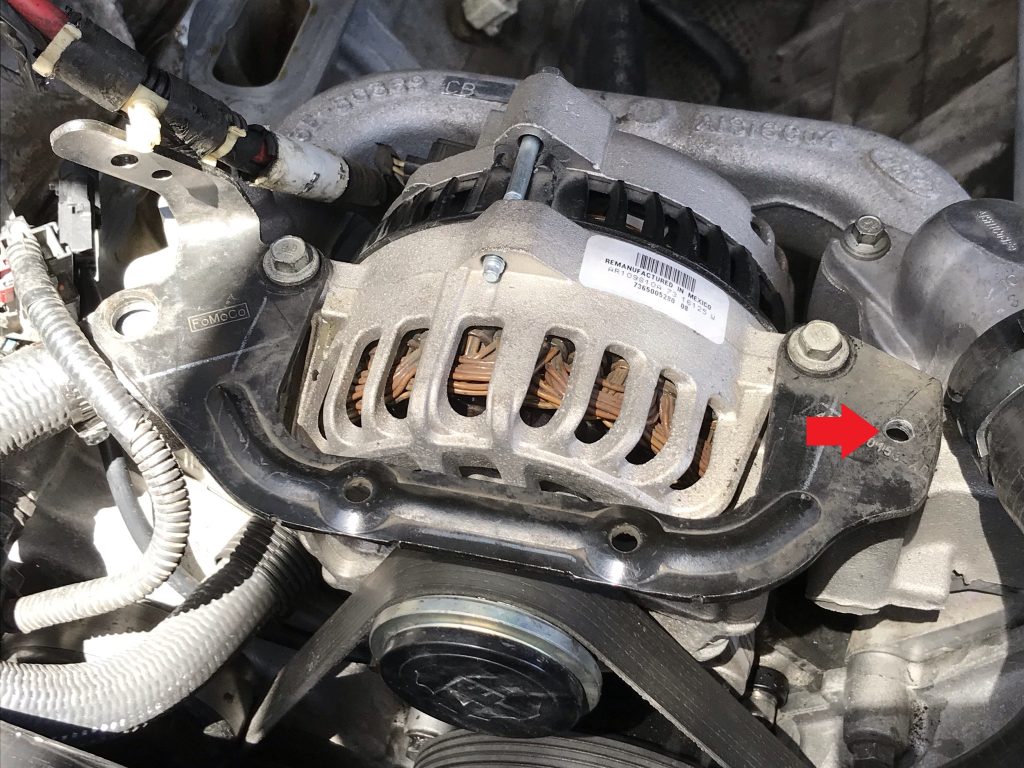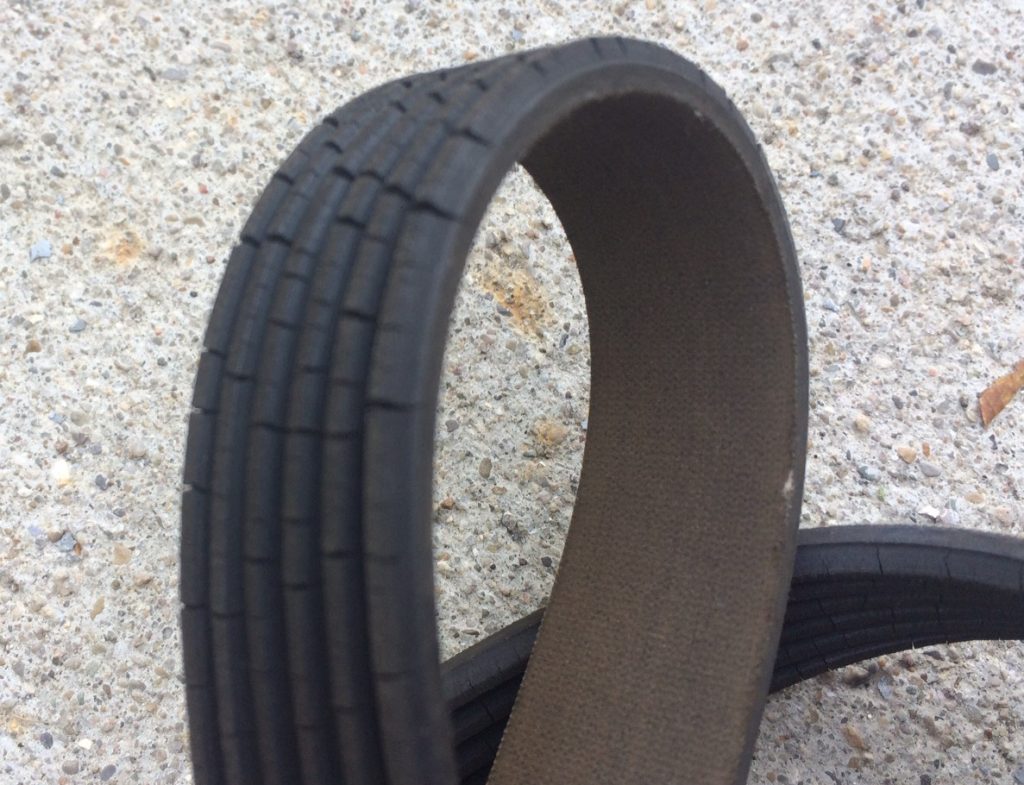There are some vehicle functions we can probably live without. A properly working charging system isn’t one of them.
Among the various common charging system problems you might encounter, one is a noisy alternator.
Here are some common causes of alternator noise.
1. Alternator Belt Problems
An excessively worn or loose alternator belt can produce foreign sounds, as can an alternator belt that is out of alignment.
Solution: Check the alternator belt for wear or looseness. Excessive material loss may be preventing the belt from fitting the alternator pulleys properly, or the belt may be cracking on either the ribbed side, or on the flat backside.
Replace or tighten as necessary, making sure the belt is properly aligned on the pulley.
Do check the pulley flanges, as bent pulley flanges are a common cause of belts running out of alignment.
Improperly aligned alternator belts will often produce a whining sound. Fixing a misaligned belt may also eliminate the noise.
2. Loose Alternator Bolt
Sometimes, an improperly mounted alternator can produce noises (and battery connection problems) that can lead to failure.
Solution: Often, a loose or missing alternator pivot bolt or adjustment bolt can be the source of the problem. It’s critical to make sure your bolts have a snug, secure fit to keep your charging system operating properly.
3. Failing Alternator Bearings

Failing alternator bearings can produce a persistent whining or grinding noise up to the point of total failure.
There are needle bearings that allow the rotor to spin freely inside the stator. They can break down from excessive dirt and heat. When the bearings fail, the rotor won’t spin efficiently and can eventually seize.
A seized bearing tends to take out your alternator belt with it.
In either case, an alternator that isn’t charging your battery will find you roadside with a non-functioning car sooner or later.
Solution: Replace your failing alternator bearings, or replace the alternator itself.


You didn’t mention the high pitch whine that can be very faint. That ended up being the telltale sign that the regulator was going out. My battery in my 91 Suburban kept dying until I traced the issue back to that.
I had the same issue withy 2010 Focus,for months, but no one could figure it out until after i ruled out everything else, and I had a couple uncommon symptoms that led me to recheck the overall symptoms and have the charging system checked. The alternator tested fine, but as soon as I started the car up to let the parts advisor listen to it, he pinpointed the noise right away.
And What about overrun pulley’s . They can cause belt chatter with auto tensioners
While driving would intermittent grinding noise and then all dashboard gauges and shift indicator light going out be signs of bad alternator bearings or something else? The gauges come back on when the grinding noise occurs again. Seems to drain battery as well. 2004 Buick Rainer
Recently I removed the OEM Denso (no whirring) from a 1999 Grand Caravan to install a new Remy. After removing the Denso I discovered the alt appeared to only need slip-ring reconditioning and new brushes. I went ahead and installed the Remy which made an electrical whining noise, which to my ear distinctly different from a belt or bearing noise. I decided to remove the Remy and reinstall; after refurbishing, the Denso. Unlike the new Remy the 200,000+ mile Denso is 14.3v at idle and is quite as a church mouse.